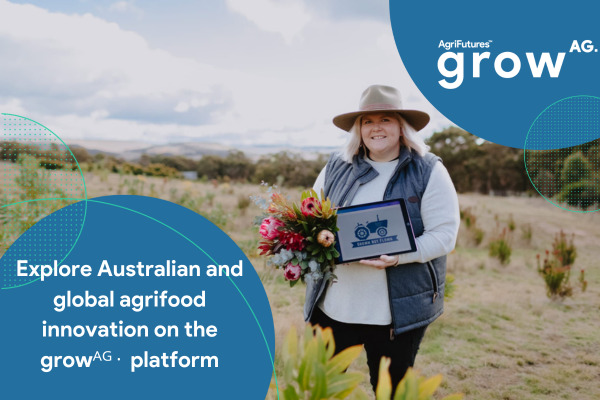As demand and options for plant-based protein grow, consumers are working through the role that plant-based eating will play in their dietary preferences. Veganism-related searches increased sevenfold between 2014 and 2019, according to Google Trends, with The Economist predicting that 2019 would be the year that veganism goes from fringe alternative to mainstream thanks in large part to young adults.
Still, only 6% of the US population identified as vegan in 2017, up from 1% in 2014. It’s difficult to find data about the number of consumers who identify as vegan in 2019. And as Veganuary comes to a close, some participants may be eagerly awaiting February 1 when they can return to cream in their coffee or bacon at breakfast. In 2014, Faunalytics conducted a study to assess how many vegetarians and vegans return to eating meat. The research’s reliability has been debated, but the results suggested that 84% of vegetarians and vegans return to consuming animal products in their diets.
Considering the meteoric growth of plant-based protein sales, however, an interesting question pops up about who is purchasing these meatless alternatives if the vegan population is still a fraction of total US consumers.
Enter: the flexitarian diet. Flexitarians are consumers who flex between eating both meat and meatless meals. There are different approaches to flexitarianism, with some subscribers limiting their meat choices to items that meet certain criteria like high welfare, locally sourced, or 100% grass-fed, while for others it’s more about cutting back on eating animal-based products on certain days of the week, such as Meatless Mondays.
With plant-based protein swaps now on the menu, flexitarian consumers have even more choices about where they get their protein. Flexitarianism has also created new market pressure for existing meat companies to foster better consumer loyalty, particularly among those consumers who ask more questions about where the meat they do consume comes from and how it was raised. At this early stage of the plant-based segment’s emergence, big meat companies are taking a variety of approaches to reposition their market strategies like launching their own plant-based products or launching direct-to-consumer e-commerce websites. These companies are also investing in startups producing new alternatives.
But for consumers in developing parts of the world, meat can often remain the best source of protein, or at least the source most coveted by growing middle classes. For these reasons, global meat consumption continues to climb, according to Statista, with beef consumption projected to increase to 72 million tons in 2021 from 67 million in 2017, while poultry will likely hit an even bigger increase, to 129 million tons in 2021 from 117 million in 2017 as the global population increases.
So how does the global protein industry — meat, plant-based and other alternatives — meet this increasing demand and need for protein in a sustainable way?
Tyson’s Coalition for Global Protein
Tyson, the poultry behemoth, is hoping the industry can work together on this challenge and has launched the Coalition for Global Protein, which will advance the “future of global protein,” convening leaders from the world’s protein industry as well as academics, NGOs, and financial institutions. The coalition will unite stakeholders throughout the protein industry with the goal of implementing new and creative solutions to achieve greater sustainability throughout the supply chain.
And by protein, Tyson does not just mean meat. The company famously rebranded itself as a “global protein company” a couple of years ago to underline its commitment to sources of protein across the gamut. It famously invested in plant-based meat leader Beyond Meat, divesting just before the IPO and launching its own brand Raised & Rooted. It’s also invested in cultivated meat startups such as Memphis Meats.
Now the company, which is understood to be winding down its VC arm, is taking another approach with this coalition.
“As one of the world’s largest food companies, we want to help ensure the responsible production of affordable, nutritious food for generations to come,” said Noel White, chief executive officer of Tyson Foods, in a press release announcing the effort. “We’re introducing this Coalition because we know that we cannot achieve this alone. Collective commitment and immediate action are needed to deliver the greatest impact on the future of sustainable food production.”
The coalition appears to be taking a three-step approach: it first hopes to identify and understand what the main challenges are to feeding a growing population sustainable protein choices; identify the creative solutions to overcoming those barriers; and test them through pilot programs. Some of the areas it’s already flagged include reducing food waste, increasing access to protein, and safeguarding ecosystems. The coalition will publicly report on its progress and commitments throughout 2020.
Executive director of Global Alliance for Improved Nutrition Dr. Lawrence Haddad will moderate the coalition’s discussions.
“Efforts to make the production of high-protein foods more sustainable must continue,” Dr. Haddad said in the release. “These foods, many from animal sources, are vital for the healthy growth of young children, especially those who already have poor quality diets. So, it is vital that their production can be undertaken in a way that respects planetary environmental boundaries. This Coalition promises to be a valuable addition to our collective efforts to square this circle.”
Whether the coalition will make measurable and meaningful progress towards improving sustainability in the global protein supply chain is a big question. Corporate sustainability initiatives have become a popular new tactic for big food companies who are looking to remain relevant to consumers as new, progressive, and more nimble companies enter the market.
As plant-based protein sales continue to claim increasing market share, additional efforts from Big Meat to green-up its act will likely follow.
















Guest article: The real impact of tariffs on US produce prices